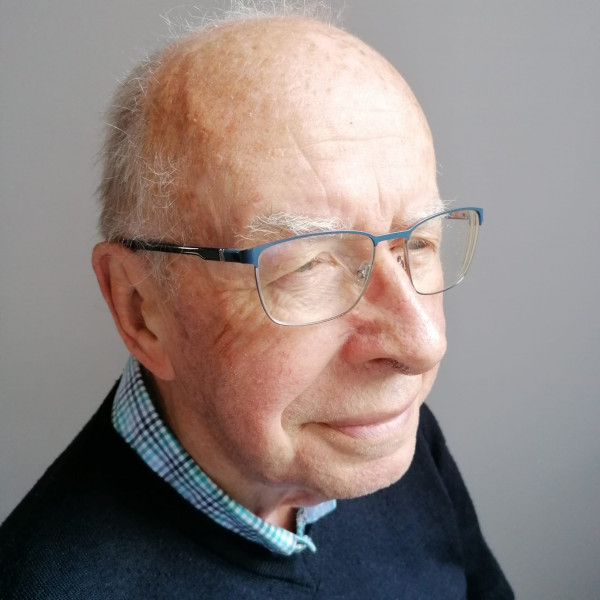Jean-Louis Thiébault
Each year, the University of Uppsala, in Sweden, awards the Johan Skytte prize in political science to a professor of political science. In 2004, it was awarded to Jean Blondel, who is the only French political scientist to have won this prize, to date. His particular contribution is to the development of European political science, both as a specialist in comparative politics and as an institution builder. He died in London at the age of 93, on December 25, 2022.
Jean Blondel was one of the great figures of political science in Europe and in the world. He has written around thirty books and dozens of articles, most of them in English. He is a former student of the Institut d’Etudes Politiques, in Paris. In 1954, the Fondation Nationale des Sciences Politiques (FNSP) offered him the opportunity to compete for a study and research grant in Brazil. He lived for a year in the state of Paraiba, located in a very poor region of the Brazilian Northeast, observing and analyzing the electoral behavior of the inhabitants of this state. He drew from it a work published in Portuguese (As condiciones da vida politica no estado de Paraiba. Fundacion Vargas, 1955), from which was extracted an article published in the Revue Française de Science politique of April-June, 1955 (page 315-334). Paradoxically, he never went back there.
This stay in Brazil encouraged Jean Blondel to consider an international career as a researcher. He went to the United States, notably to Yale University. He joined Great Britain in Oxford, then in Manchester and Keele, as British political science was beginning to structure itself (in the 1960s and 1970s). He was then deeply influenced by two great names in this discipline, W.J.M. Mackenzie and Samuel E. Finer. The University of Manchester was, at that time, the undisputed center of political studies in Great Britain. Under the influence of W.J.M. Mackenzie, the political science department opened up to new fields of administration, interest groups, political parties and electoral sociology.
Indeed, in the early 1960s, the British government announced the creation of new universities. In 1962, Jean Blondel became professor of political science and founder of the Department of Government at the University of Essex in Colchester. In this context, he took the opportunity to create an innovative department and develop the analysis then in vogue in the major American universities. Jean Blondel’s ambition was to make the University of Essex one of the major centers of political science in Europe, so as to compete with the major American departments. He also developed the logistical base necessary to found a summer school of research methods in 1968, based on the model of Michigan. Another initiative led by Jean Blondel included the National Election Study. The University of Essex then became not just the initiative of one man, but the grouping of internationally renowned professors and researchers such as Anthony King, Ian Budge, Ivor Crewe, David McKay, David Sanders, and Emil Kirchner.
To fight against the intellectual domination of American political science, in comparison with the underdeveloped state of the discipline in Europe, Jean Blondel allied himself with Rudolf Wildenmann, of Mannheim, and Stein Rokkan, of Bergen, in order to create the European Consortium for Political Research (ECPR) in 1970. The organization was based on the membership of universities that paid to belong. Stein Rokkan was then the president and Jean Blondel the executive director. Research workshops were organized each year, welcoming scholars from different countries working on a common theme, which often gave rise to real communities of researchers. The formula obtained, and still obtains, considerable success not only with European researchers, but also with researchers from other continents.
Jean Blondel was not only a builder of institutions. He was also a researcher. For him, writing was a necessary complement to his institutional activities. His specialty was comparative politics. He published a very early Introduction to Comparative Government (1969), in which he developed the assertion that comparative politics must cover all the countries for which there is information. The approach was original because, until then, comparative politics consisted of the detailed treatment of important countries (United States, Great Britain, France, USSR, Germany, Japan, etc.), very often based on an analytical comparison detailed for each country, separately.
Two influences are present in his approach to comparative politics: the American and behavioralist influence, and the European and institutionalist influence. Jean Blondel is much less concerned with a theory than he is much more attentive to the realities perceived in the data collected. He did not create a school of thought, but stimulated new research. He also often worked alone.
From the time he had become a professor at the European University Institute in Florence (1985-1994) and a visiting professor at the University of Siena, he initiated an entire series of research on governmental structures, party politics, ministerial careers, political leadership and presidentialism. He accomplished this by bringing together researchers from all European countries.
Jean Blondel’s more recent interests have been in the political development of Africa and Latin America. In two works, Presidents and democracy in Latin America (Routledge, 2018), and The presidential republic (Palgrave Macmillan, 2015), he devotes some fundamental chapters to the development of Latin American presidentialism. He shows how Latin American countries took a difficult and uncertain road to presidential rule, and how they deviated from its principles on numerous occasions without, however, clearly abandoning them.

